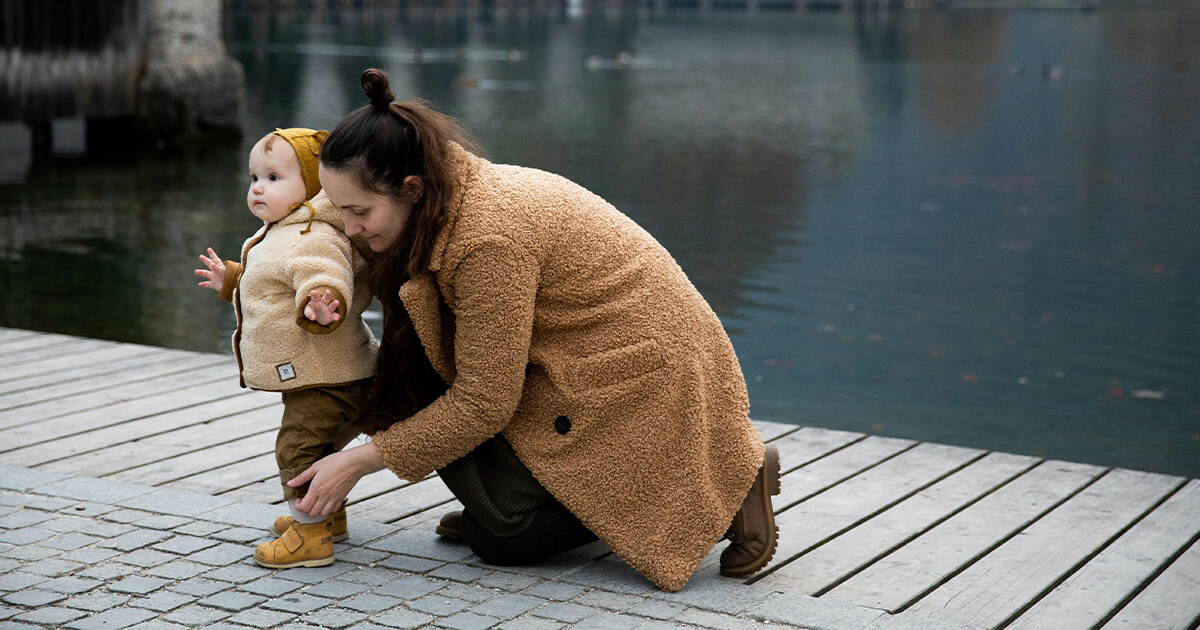Eco-Friendly Parenting
Green Kids: The Ultimate Guide to Eco-Friendly Parenting
Eco-friendly parenting isn’t just a trend—it’s a lifestyle choice that benefits your family and the environment.
By adopting sustainable practices, you can reduce your carbon footprint and instill valuable eco-conscious habits in your children from a young age.

This comprehensive guide will provide practical tips and insights on integrating eco-friendly practices into your parenting routine, creating a healthier planet for future generations.
Introduction to Eco-Friendly Parenting
In today’s world, the importance of eco-friendly parenting cannot be ignored. With climate change and environmental degradation posing significant threats, raising children’s awareness of their impact on the planet is crucial.
Eco-friendly parenting helps reduce waste and conserve resources and teaches kids the value of sustainability. This guide explores ways to make your parenting practices greener, from using eco-friendly products to nurturing an eco-conscious mindset in your children.
Why Choose Eco-Friendly Products?
Benefits of Eco-Friendly Products
Switching to eco-friendly products can make a huge difference in reducing your household’s environmental impact.
These products are often made from sustainable materials, are biodegradable, and have a smaller carbon footprint than their conventional counterparts.
For instance, using cloth diapers instead of disposable ones can significantly reduce waste. Similarly, natural cleaning products can minimize harmful chemical exposure for your family and the planet.
Tips for Using Eco-Friendly Products
- Start Small:
Begin by replacing one or two conventional items with their eco-friendly alternatives. It could be as simple as switching to bamboo toothbrushes or reusable silicone food storage bags.
- Research Brands:
Look for brands that prioritize sustainability in their manufacturing processes. Check for certifications like USDA Organic, Fair Trade, or Green Seal to ensure the products meet high environmental standards.
- DIY Options:
Consider making your eco-friendly products at home. Online, and they often require only a few natural ingredients.
Sustainable Practices at Home
Green Food Choices
Food production and consumption play a significant role in environmental sustainability.
You can reduce your family’s ecological footprint by making conscious choices about what you eat and how you source your food.
- Buy Local and Organic:
Support local farmers and choose organic produce to reduce the reliance on pesticides and long-distance transportation.
- Reduce Meat Consumption:
Introduce more plant-based meals into your diet. Reducing meat consumption can significantly lower greenhouse gas emissions and conserve water.
- Minimize Food Waste:
Plan your meals, use leftovers creatively, and compost food scraps to reduce waste.
Energy-Efficient Living
Making your home more energy-efficient benefits the environment and can save you money on utility bills. Simple changes can have a significant impact.
- LED Lighting:
Replace incandescent bulbs with energy-efficient LED lights to reduce electricity consumption.
- Unplug Devices:
Unplug appliances and electronics when they’re not in use to avoid phantom energy drain.
- Insulate:
Properly insulating your home can help maintain a consistent temperature, reducing the need for heating and cooling systems.
Waste Management
Effective waste management practices can significantly reduce the amount of trash in landfills, helping preserve natural resources.
- Recycle Correctly:
Familiarize yourself with local recycling guidelines to ensure you’re correctly sorting materials.
- Use Reusable Items:
Swap single-use items like plastic bags and water bottles for reusable alternatives.
- Compost:
Start a compost bin for organic waste to enrich your garden soil.
Nurturing an Eco-Conscious Mindset in Children
Teaching Environmental Responsibility
Instilling eco-conscious values in your children can help them grow into responsible, environmentally-aware adults.
- Lead by Example:
Children learn by observing their parents. Demonstrate eco-friendly habits like recycling, conserving water, and reducing waste.
- Educational Activities:
Engage your kids in activities that teach them about the environment. It could include nature walks, visits to recycling centers, or gardening.
- Eco-Centric Books and Media:
Introduce your children to books, documentaries, and shows highlighting the importance of protecting the environment.
Encourage Participation
Involving kids in eco-friendly practices makes them feel responsible and builds their understanding of sustainability.
- Household Chores:
Assign age-appropriate eco-friendly tasks, such as sorting recyclables or watering plants with collected rainwater.
- Community Clean-Up:
Participate in local clean-up events to show your kids the impact of collective action.
- DIY Projects:
Create fun, eco-friendly DIY projects like making bird feeders from recycled materials or crafting with natural items found in your backyard.
Finding Community Support
Online Resources
Numerous online communities and resources for eco-friendly parenting, where you can find support, share tips, and stay informed about the latest sustainable practices.
- Green Child Magazine:
A comprehensive resource for eco-conscious parenting tips, product reviews, and green living advice.
- Eco-Parent:
An online magazine offering practical advice on natural parenting, green living, and healthy eating.
- Sustainable Baby Steps:
A website providing guides on eco-friendly parenting, including cloth diapering, natural baby care, and sustainable home practices.
Local Initiatives
Engaging in local environmental groups and activities can provide a sense of community and reinforce your commitment to eco-friendly parenting.
- Environmental Workshops:
Attend workshops or classes on composting, organic gardening, and sustainable living.
- Parenting Groups:
Join local parenting groups focusing on eco-friendly practices, where you can connect with like-minded families and share experiences.
- Community Gardens:
Participate in or start a community garden project, which can be a great way to teach kids about growing food and the importance of local produce.
Conclusion
Eco-friendly parenting is a rewarding journey that benefits your family and the planet. You can significantly impact your children by incorporating sustainable practices, using eco-friendly products, and nurturing an eco-conscious mindset.
Remember, every small step counts; collectively, these efforts lead to a healthier, more sustainable future.
Ready to take the next step? Start exploring eco-friendly parenting practices today and join a community of like-minded individuals dedicated to making a difference. For more in-depth resources and support, check out Green Child Magazine and other recommended platforms.
Together, we can raise a generation of environmentally conscious individuals who understand the importance of protecting our planet. Happy green parenting!









